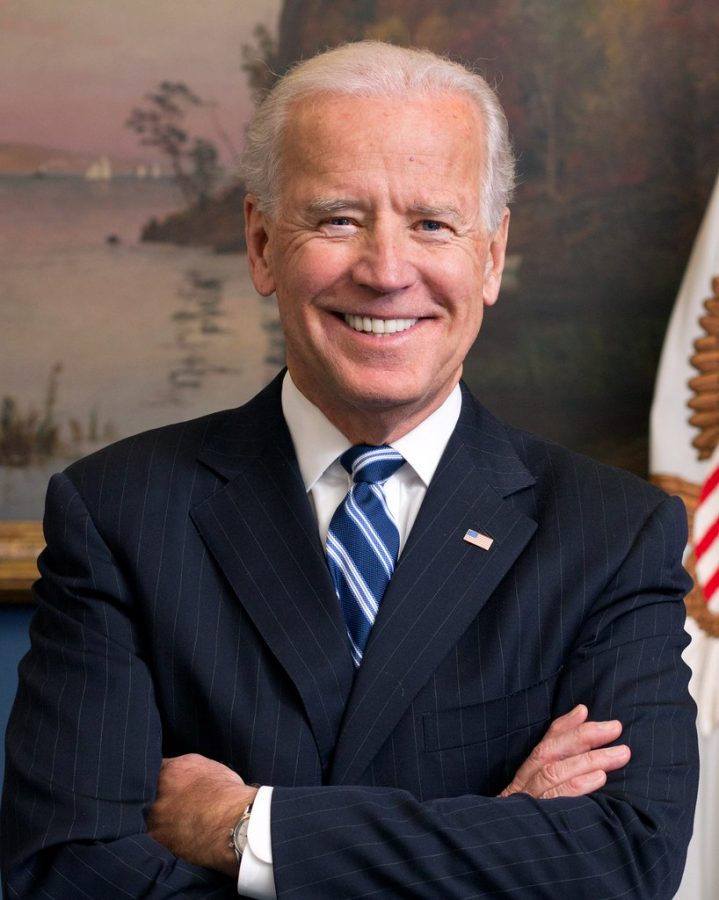Realistic Expectations for Biden’s First Term
According to a Pew Research report from Nov. 14, 2020, just after election day, at least 97% of either Joe Biden or Donald Trump supporters would be at least “very concerned about the direction of the country” if the other candidate were to win. Now that Biden has been inaugurated and taken office, he has already signed over 30 executive orders and asked Congress to consider many other ideas.
In such a divided country, the White House and both Chambers of Congress turning blue has emphasized several issues that Biden and the Democrats must face, most notably nurturing a torn society, slowing climate change and reforming law enforcement.
Uniting the country
Typically, when a president is elected who is of the opposite party as his predecessor, the country is bound for drastic change in policy and ideology. Now, with the historic separation between Democrats and Republicans, that will certainly be the case for Biden replacing Trump as President of the United States.
“The American public is more divided than ever. When we look at surveys in a historical context, we see a lot of division and I think solving that problem is bigger than any one person and even any president,” said Washington University professor of political science Dr. Andrew Reeves. “It doesn’t seem like Biden is going to act in the same way that Trump did in fanning those flames, [but] quite the opposite based on his past and how he’s behaved so far. He’s a moderate person both in terms of his political beliefs and how he engages in personal manner and I think that’s a good start to heal these political divides.”
Biden’s campaign and speeches as President thus far have centered on sensical logic and ideas uniting the country.
“I want to see what a bunch of Biden supporters want to see: a return to sanity and calmness, solutions that are based on science, good peer review,” said social studies teacher Scott Moeller. “I think there has been such controversy and tension and that’s what Trump’s [agenda] was about and that has undermined a lot of people’s trust in executive functions, programs and government in general. So I think that with Biden’s placement, staffing and calm demeanor [a return to sanity is] realistic to hope for.”
This theoretical and hopeful appearance of unity should be approached with skepticism though.
“I think there are still institutional and historical reasons having to do with race and inequality that are driving some of these divisions that aren’t going to be solved by a president that simply isn’t Tweeting obnoxious things all the time,” said Dr. Reeves.
Moreover, according to Pew Research, “liberal Democrats use social media for key civically minded activities more than other groups.” This means that, though things may appear more united than when Trump was President, it may just be that the outspoken Democrats are content while the reserved Republicans are angry, creating a facade of unity.
“Biden can be a little bit polarizing so in terms of unity, it may seem like America’s being united but that may be because the people that are the most vocal are the people more on [Biden’s] side,” said junior Sam Miller.
This substantial division goes beyond the American public however; it stretches into Congress as well. Due to the nature of the Constitution and the government’s foundational checks and balances, for most legislation to be passed, a party must have a majority in the House of Representatives and a supermajority in the Senate. Though, in addition to Biden, the Democrats do have a majority in both Chambers of Congress, they don’t have the 60 votes necessary for a supermajority in the Senate.
“[Not having a supermajority] will make it very difficult for Biden to get all the things he wants to see get through Congress,” said Dr. Reeves. “Little change is going to be difficult, big change is going to be next to impossible given the current institutional rules.”
Climate change
Due to the lack of a supermajority in the Senate, the most efficient way for Democrats to pass bills will be via executive action.
“[Biden] can overturn nearly everything that Trump did via executive action with his own executive actions. We [rejoined] the Paris Climate Accords since that was done under an executive agreement. So, just like Trump was well-positioned to undo everything Obama did via executive order, Biden’s in position to undo every action that Trump took but legislation’s a lot harder,” said Dr. Reeves.
As a result of the executive agreement’s power, America rejoined the Paris Climate Accords on Feb. 19. This symbolized a major step towards Biden implementing his and the Democratic Party’s agenda.
Biden supporters are hopeful that this trend of protecting the environment continues in spite of the political hurdles
“I could see how there could be some challenges [in protecting the environment] because the revenue to subsidize green industry has to come from somewhere but in the long run, retooling America to embrace green jobs and green industries, [will make us] all the better for it,” said Moeller.
At this point, though most do agree that climate change is real, the economics remain very controversial. While countries like China and Denmark have pledged to significantly grow their green industry, America has started lagging behind due to the immediate costs.
“As humans, we’re really bad about thinking about costs we’re going to have to pay in the future. We see this in Texas right now. People said, ‘you need to invest in your energy infrastructure or something really bad is going to happen’ and [Texas decided to ignore it.] Now you have people dying and freezing because of the poor investment in this longer term problem. It’s really hard to get people to pay a cost for something that they’re going to reap the benefit of in the future and that’s the PR problem that Biden faces,” said Dr. Reeves.
In a day in age where an overwhelming number of politicians are too radical to get anything done, Biden may serve as a good compromiser.
“In some ways Biden might be the perfect person to deliver the center left position [in passing environmental legislation,]” said Dr. Reeves.
Police reform
In addition to the economics of green energy, police reform has also become an increasingly pressing issue. Over the past year, since George Floyd’s death on May 25, 2020, it’s become apparent that the current law enforcement system is at least partially broken.
“I’d like to see police reform on some level. I think the issue is a little bit misconstrued though. A lot of times, the [media and public blame the police,] but it’s not always the policeman’s fault. It’s how they were trained and their culture that’s to blame,” said Miller.
However, the President holds little power in shaping police reform.
“Decisions about police funding and how much money to allocate to social workers versus cops walking the beat isn’t really a decision that the President is going to make on a municipality by municipality basis,” said Dr. Reeves.
Though it may seem inefficient, allowing municipalities to choose how they want to shape their police system may be an advantage. Justice Louis Brandeis coined the term “laboratory of democracy” which means that municipalities can experiment with different trials and, if they’re successful, similar strategies can be expanded by the federal government.
“We need knowledge, we need research, we need municipalities to try different things and to see if programs can work in different places. Something that works in the city might not work in Creve Coeur: this is where America’s laboratory of democracy [comes into play,]” said Dr. Reeves. “Decisions are usually made by the communities and not the President of the United States.”
The checks and balances of the Constitution drastically limit the President’s power whether it be for good or for bad. Quite possibly the President’s greatest power is the “bully pulpit” which means the President’s voice is heard by all and is capable of indirectly instilling change.
“I think the tone that he sets really matters and he’ll be known most for that. There’s a lot of distrust that people of different parties have for each other; there’s been a lot of trolling and cancel culture on social media and people really feel like the hate the other side so I think setting the right tone, embracing science and data, will be [Biden’s] legacy,” said Moeller.
It’s impossible to project what exactly Biden will do in the next four years and it’s even harder to predict how the public will react to it, but one thing’s for sure: things in the Oval Office are changing.
“Basically every president has done a lot of good but also a lot of destruction at the same time. Both parties are pretty extreme at this point and everything they do will be a double edged sword,” said Miller.

Hi, I'm Jordan Eisen, and this is my fourth year in Newspaper. I really enjoy journalism, especially sports writing; I run a sports blog and podcast outside...





![There are many AI sites and apps available. “You don't [stop students from using AI] - you teach them how to use it,” social studies teacher Melody Barger said.](https://pnhnorsestar.com/wp-content/uploads/2025/01/AI-600x400.jpg)





